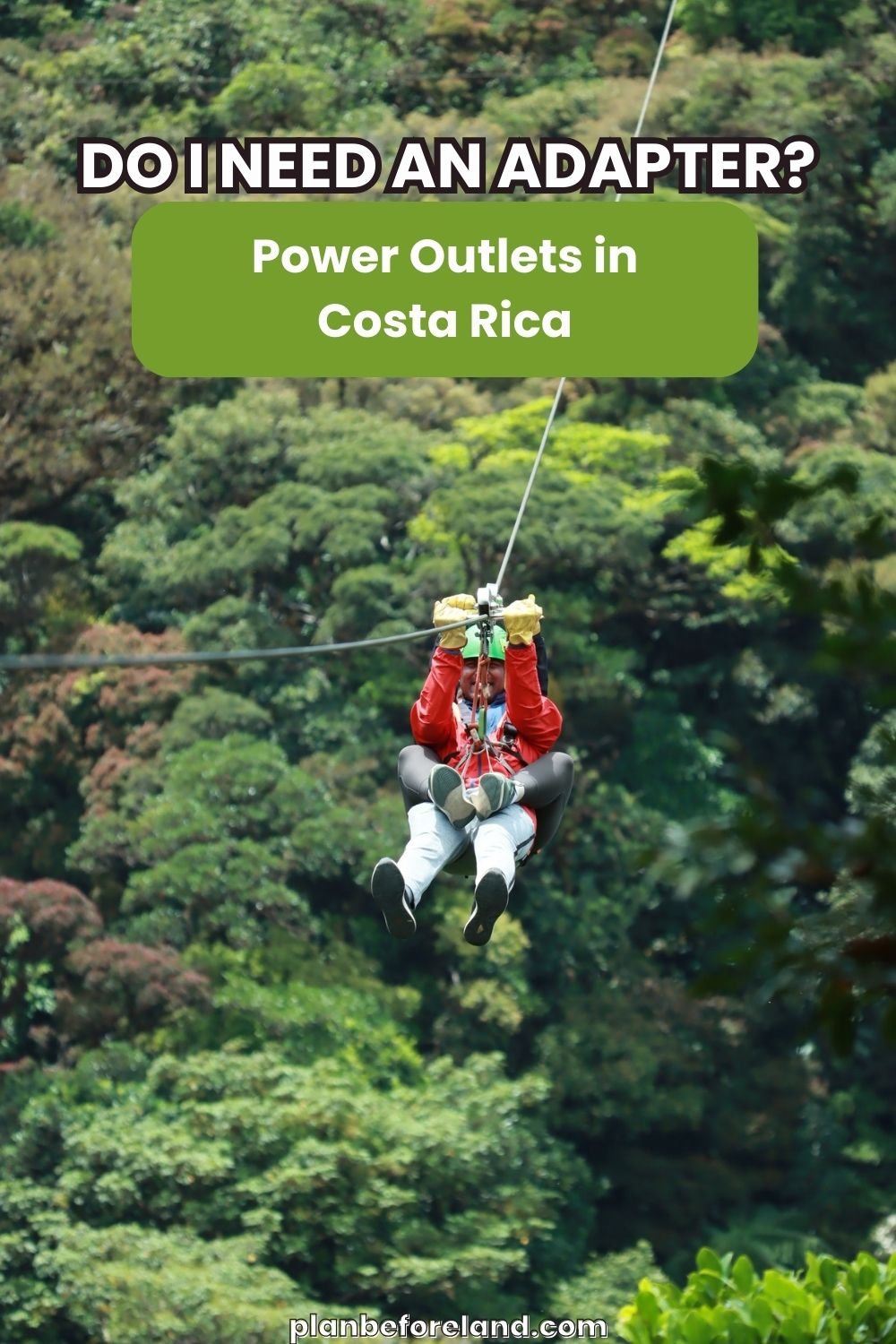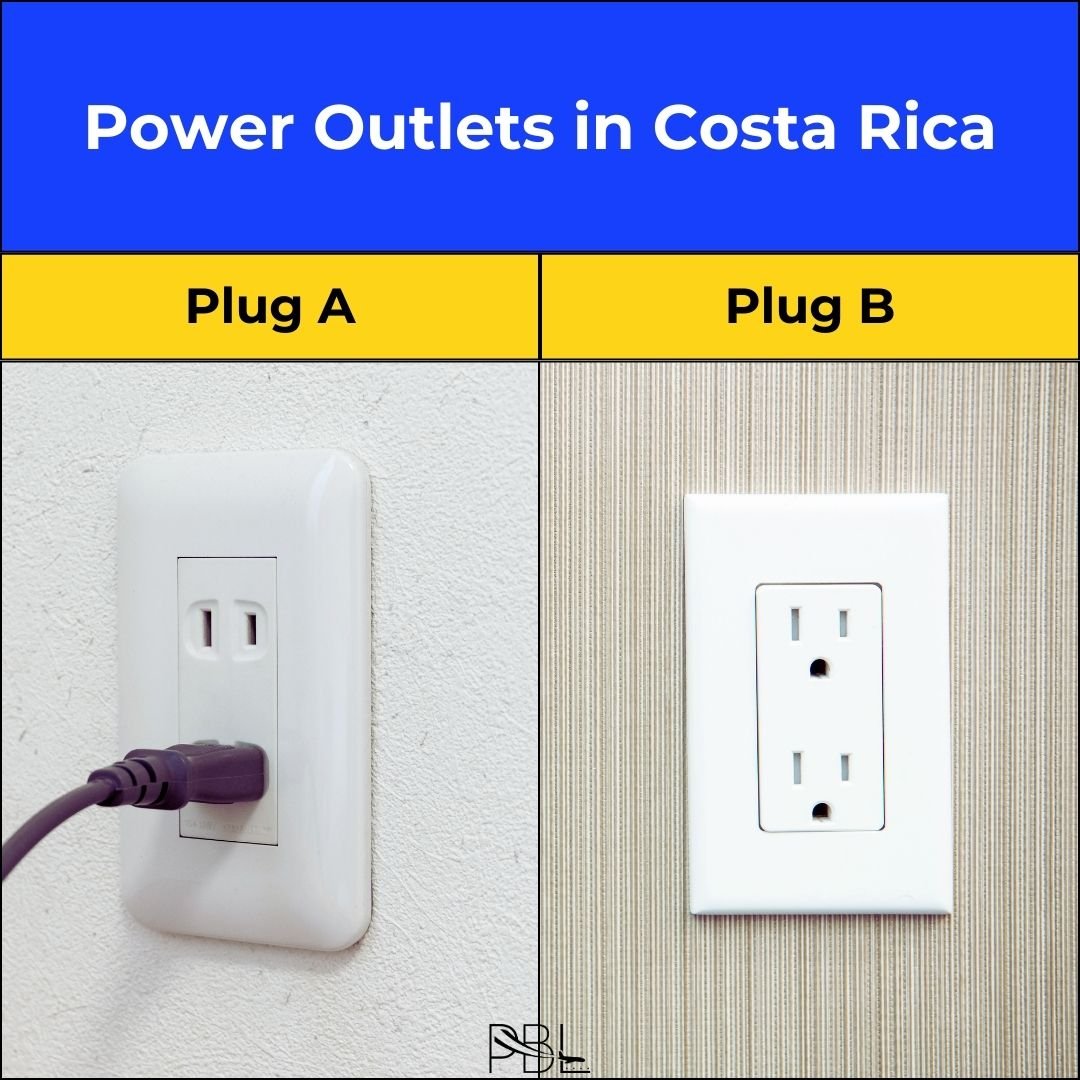Understanding Power Outlets And Electrical Systems In Costa Rica
Planning a trip to Costa Rica? It’s essential to familiarize yourself with the local power outlets and electrical systems to ensure your devices stay charged and functional throughout your journey. Whether you’re embarking on a short getaway or an extended adventure, understanding the voltage, plug types, and necessary adapters will prevent potential inconveniences. Costa Rica boasts a modern and efficient infrastructure, yet it may differ from what you're accustomed to in your home country, making preparation key to a smooth experience.
Costa Rica is renowned for its stunning landscapes, rich cultural heritage, and advanced amenities, attracting tourists from around the globe. However, as a traveler, it’s crucial to account for differences in power systems, especially if you hail from regions with distinct electrical standards. This comprehensive guide will equip you with all the information you need to remain connected and powered up during your travels in this picturesque Central American nation.
In this article, we’ll delve into everything you need to know about power outlets in Costa Rica, including plug types, voltage requirements, adapter recommendations, and safety tips. By the end of this guide, you’ll be fully prepared to manage any electrical needs during your visit, ensuring a stress-free and enjoyable trip.
- Discover The Timeless Allure Of Al Green Albums
- Join The Russell Peters Comedy Tour For Unforgettable Laughter
Table of Contents
- Plug Types in Costa Rica
- Voltage and Frequency in Costa Rica
- Do You Need an Adapter?
- Travel Tips for Power Usage
- Dealing with Power Outages
- Safety Tips for Using Power Outlets
- Understanding the Electrical System
- Costs Associated with Electrical Usage
- Eco-Friendly Power Practices
- Conclusion
Understanding Plug Types in Costa Rica
In Costa Rica, the predominant plug types are Type A and Type B, similar to those used in the United States and Canada. These plugs feature two flat prongs, with Type B additionally incorporating a grounding pin. If your devices utilize these plug types, you won’t require an adapter. However, travelers from regions such as Europe or Asia, where different plug types are standard, may need to bring a universal adapter to ensure compatibility with local outlets.
Here’s a concise overview of the plug types you’ll encounter:
- Type A: Two flat prongs
- Type B: Two flat prongs with a grounding pin
While most hotels and accommodations in Costa Rica are equipped with these standard outlets, it’s prudent to verify beforehand. In some remote or older buildings, you might encounter outdated systems. Having a backup adapter on hand is therefore advisable for peace of mind during your travels.
- Comprehensive Guide To Contacting Chase Bank Customer Service
- Exploring The Timeless Legacy Of Bruce Springsteen
Voltage and Frequency Standards in Costa Rica
The standard voltage in Costa Rica is set at 110V, with a frequency of 60Hz. This aligns with the electrical systems in the United States and Canada, making it convenient for travelers from these regions. However, if you’re visiting from countries that operate on 220V or 230V, such as Europe or Asia, a voltage converter will be necessary to safeguard your electronics from damage.
It’s important to note that many modern devices, such as laptops and smartphones, are dual-voltage and can accommodate both 110V and 220V without issues. Always refer to the specifications on your device’s power adapter to confirm compatibility. For single-voltage appliances like hairdryers or electric shavers, a voltage converter is indispensable to ensure safe operation.
An Overview of Costa Rica’s Electrical System
The electrical grid in Costa Rica is managed by the Instituto Costarricense de Electricidad (ICE), ensuring a reliable and consistent supply of electricity nationwide. Although the system is generally efficient, minor fluctuations can occasionally occur, particularly in rural areas. To protect sensitive electronics from voltage spikes, it’s recommended to use surge protectors as an added precaution.
Determining If You Need an Adapter
The necessity for an adapter depends on the plug type of your devices. As previously mentioned, if your devices use Type A or Type B plugs, you won’t need an adapter. Conversely, if your plugs differ, a universal adapter will prove invaluable. These adapters are readily available in electronics stores and airports, but securing one before your trip ensures availability and convenience.
When selecting an adapter, opt for one that supports both Type A and Type B plugs, along with grounding pins for enhanced safety. Some adapters even include USB ports, offering the convenience of charging smartphones and tablets directly without the need for additional cables.
Practical Travel Tips for Managing Power Usage
To help you effectively manage your power needs while traveling in Costa Rica, consider the following tips:
- Carry a portable power bank to charge devices on the go, especially during outdoor excursions.
- Exercise caution when using high-power appliances like hairdryers in older buildings, where electrical systems may be less robust.
- Unplug devices when they’re not in use to conserve energy, prevent overheating, and reduce the risk of electrical accidents.
- Invest in a multi-port USB charger to simultaneously charge multiple devices, streamlining your charging process.
Implementing these simple yet effective strategies will help you stay organized and prepared for any electrical challenges that may arise during your trip.
Navigating Power Outages in Costa Rica
While power outages are infrequent in urban areas, they can occasionally occur in remote or rural regions. To prepare for such situations, consider bringing a portable lantern or flashlight for emergency lighting. Some hotels and accommodations may have backup generators, but having a contingency plan is always prudent. Additionally, ensure your devices are fully charged before venturing out for the day, especially when visiting areas with limited infrastructure.
Understanding Costs Associated with Electrical Usage
Electricity costs in Costa Rica are relatively affordable compared to many other countries. However, prolonged use of high-power appliances can lead to higher bills, particularly during vacation rentals or extended stays. To keep costs under control, be mindful of your energy consumption and turn off lights and appliances when they’re not in use. Many hotels and resorts also offer eco-friendly options, such as energy-efficient lighting and solar panels, which can help minimize your environmental impact while reducing costs.
Ensuring Safety When Using Power Outlets
Safety should always be a top priority when using power outlets in unfamiliar environments. Follow these guidelines to ensure your safety:
- Utilize only certified adapters and converters to prevent electrical hazards and ensure compliance with local regulations.
- Avoid overloading outlets with too many devices at once, as this can lead to overheating and potential electrical failures.
- Keep electrical devices away from water sources to prevent accidents and maintain a safe environment.
- Regularly inspect cords and plugs for signs of wear or damage, replacing them promptly to avoid risks.
By adhering to these safety tips, you can enjoy a secure and worry-free experience while using power outlets in Costa Rica.
Promoting Eco-Friendly Power Practices in Costa Rica
Costa Rica is celebrated for its dedication to sustainability and eco-friendly practices. When it comes to electricity, you can contribute to these efforts by adopting energy-efficient habits. Use energy-saving light bulbs, turn off lights when leaving a room, and consider solar-powered chargers for your devices. Many eco-lodges and sustainable accommodations in Costa Rica offer innovative solutions to reduce energy consumption, providing a unique and environmentally conscious travel experience that aligns with the country’s green values.
Recap: Power Outlets in Costa Rica
In summary, understanding power outlets in Costa Rica is vital for a seamless and hassle-free trip. The country predominantly uses Type A and Type B plugs, with a standard voltage of 110V and a frequency of 60Hz. While adapters and voltage converters may be necessary for some travelers, many modern devices are compatible with these standards.
We invite you to share your thoughts and experiences in the comments section below. Have you encountered any unique challenges with power outlets during your travels? We’d love to hear from you! Additionally, feel free to explore other articles on our site for more valuable travel tips and insights.
Conclusion
Costa Rica’s power outlets and electrical systems are designed to accommodate international travelers, ensuring a smooth experience for visitors from various parts of the world. By acquainting yourself with the plug types, voltage requirements, and safety tips outlined in this guide, you’ll be well-equipped to handle any electrical needs during your stay.
As you plan your trip, remember to pack the necessary adapters and converters, and consider eco-friendly practices to align with Costa Rica’s commitment to sustainability. We hope this article has provided you with valuable information to enhance your travel experience. Don’t hesitate to share this guide with fellow travelers and leave a comment below to let us know how it assisted you!


Detail Author:
- Name : Rhianna Ullrich PhD
- Username : rcorwin
- Email : nikolaus.blanche@gmail.com
- Birthdate : 1971-12-06
- Address : 7267 Liza Branch Smithborough, IN 37048
- Phone : +1.520.200.9006
- Company : Hoeger, Crist and Weber
- Job : Marketing Manager
- Bio : Debitis et laudantium nulla sapiente ex. Non a vel temporibus. Velit voluptates nemo voluptas in dolorum quasi. Distinctio voluptatum quo ut culpa quae quis.
Socials
instagram:
- url : https://instagram.com/claud_gleichner
- username : claud_gleichner
- bio : Voluptas ut ut est delectus similique ut. Quasi aut et similique.
- followers : 6182
- following : 554
linkedin:
- url : https://linkedin.com/in/claudgleichner
- username : claudgleichner
- bio : Veniam nam illum sunt dicta.
- followers : 1961
- following : 2086
facebook:
- url : https://facebook.com/claud_gleichner
- username : claud_gleichner
- bio : Maiores blanditiis provident corrupti est.
- followers : 4974
- following : 1431